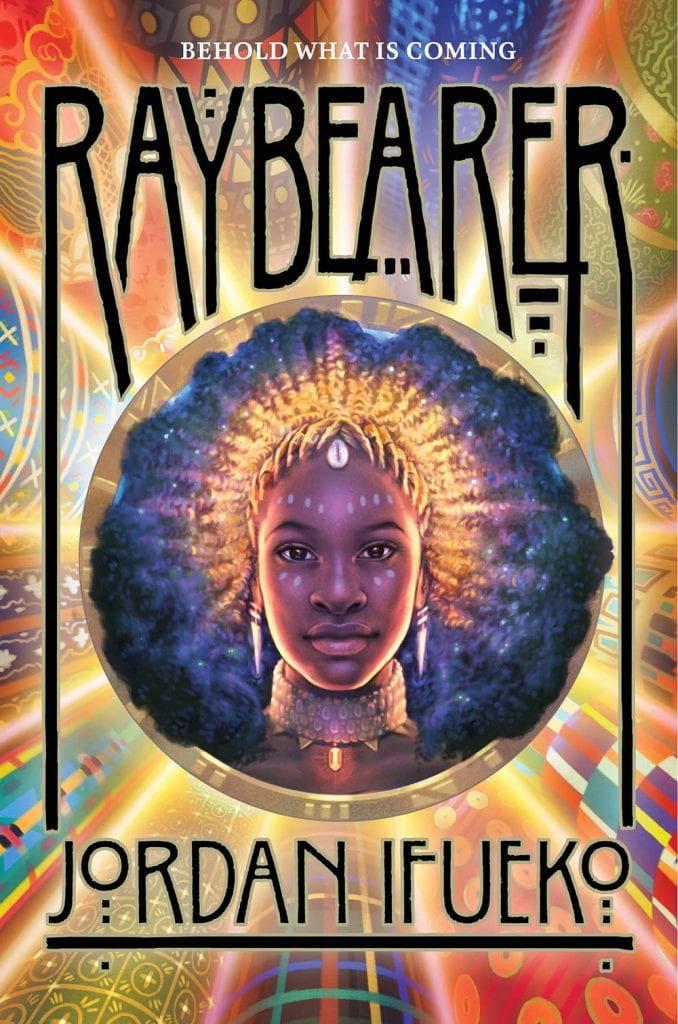
Raybearer by Jordan Ifueko is an West African inspired fantasy novel, first in a duology, detailing the journey of Tarisai, a girl raised in seclusion by tutors, at the behest of an absent but enigmatic mother with ulterior motives. She is the result of her mother enslaving an ehru and using a wish from him to assault him, in order to create a child gifted enough to earn a place amount the crown prince’s council. However, she does not want her there for the empire’s benefit, no, she wants her to become one of the only eleven people in the world capable of killing the magically protected prince.
This book is an adventure at breakneck pace. There are no points in reading it that feel like a slog, or even slow at all. Even though there are some flimsy excuses for some plot device’s existence, and some things go underexplained as a result of it, the reader is left too blown away to begrudge it. The interweaving of cultural aesthetics with original world building is masterful, creating a universe that feels both authentic and fresh. While the pace compromises the weight of the characters, the ones who stand out from the large cast leave powerful impressions, and Tarisai has a very strong arc as she struggles with her nature and the person she’s become in spite of it.
Thankfully, the author did not bite off more than she could chew given the wordcount. Every plot device and thread is wrapped up by the end, with the only ones left being the setup for the sequel. Even things that seemed like innocuous bits of side character backstory had major relevance by the end. It led to feeling of genuine satisfaction at the ending.
There is only one thing that I had a genuine problem with, in the entire book. Spoiler warning for the next two paragraphs.
Tarisai and the prince are cousins. This is the largest reveal in book. Her mother wants him and his father dead so that she can claim her brother’s throne. This is simple enough, and perfectly fine, however, there is a subplot that has no right to exist given this. Before this is discovered, Tarisai and the prince’s relationship is constantly characterized by other characters and themselves in a romantic light. This was flat out unnecessary. Their relationship could have gone without the constant suggestions of being anything more, and absolutely nothing would have changed but for removing the incestuous undertones.
The only purpose it served was to set up a love triangle, or if one one was to stretch it, throw in that the prince is asexual, which is the best example of the LGBT representation being rather hamfisted and reserved for side characters with their sexualities being completely irrelevant.
Something that could easily be removed however, does not damn a book that as a whole, is extremely solid and well written. Cohesive and coherent, it was a pleasant read full of vivid imagery, and I would recommend it without hesitation
